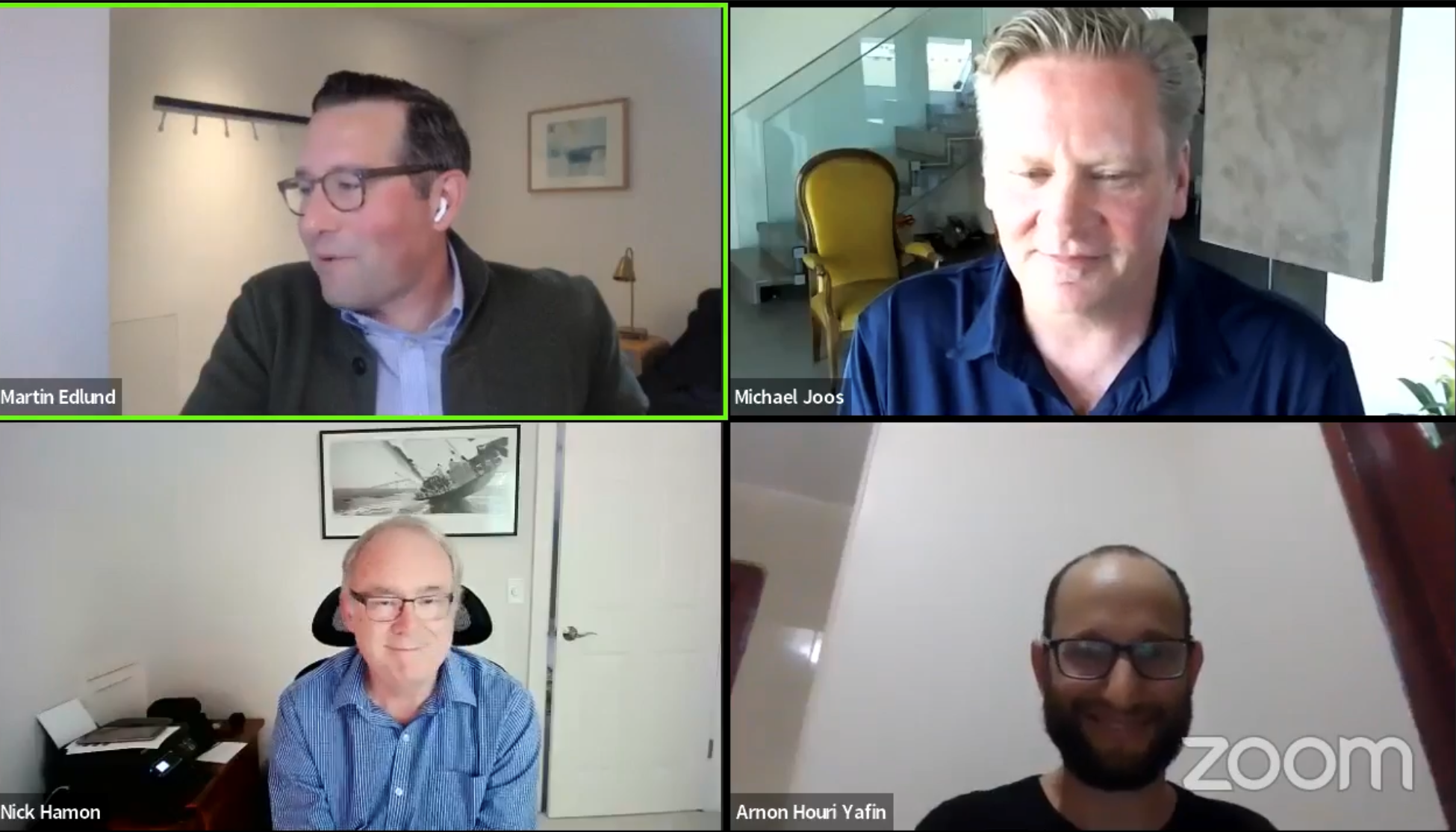Mosquito control “basics” - long-lasting insecticide-treated bed nets, indoor residual spraying, and larvicide application – are credited with much of the tremendous progress made against malaria over the last 25 years. But with millions still not sleeping under bed nets, the rise of pyrethroid-resistant mosquitoes, and complicated requirements for successful larvicide application, more innovation is needed.
In the first of a new webinar series entitled “Path to Zero: Innovations to End Malaria,” Malaria No More’s Martin Edlund speaks to 3 CEOS who are exploring the latest innovations to enhance tried and true technologies for the prevention of malaria. This discussion, “Better Than Basics,” is sponsored by Vestergaard.
Path to Zero: Innovations to End Malaria
Michael Joos, CEO, Vestergaard
Vestergaard, a company that has manufactured long-lasting insecticidal nets for decades, is transforming its approach to manufacturing bed nets by using recycled materials to produce more eco-friendly malaria prevention tools to help protect the health of both people and planet.
DATA-DRIVEN TECHNOLOGY
JOOS: “Of course, there is a correlation between incidence and death rates… and I think this is an area where I'm glad to see new technology, like the ones that are known and others are bringing in, because I think you become more sophisticated as a community in just using tools, more efficient. At the end of the day, I think data is certainly one way to do that.”
BED NET DISTRIBUTION
JOOS: “Bed nets are the foundation of the fight against malaria...if we don’t do the job with bed nets, we don’t do a good job, period. Being better at basics will help us…to reduce cost of these tools, even when they become more sophisticated and more expensive.”
SUPPLY CHAIN IMPROVEMENTS
JOOS: “All of these issues, insecticide resistance management, more complicated chemistry, more complicated products, longevity, oil price and so on, would lead us to believe…these products would become more expensive in the future….We can make them more green, greener, more environmentally friendly….We need to get better at simple supply chain management.”
Dr. Nick Hamon, CEO, Innovative Vector Control Consortium (IVCC)
The Innovative Vector Control Consortium (IVCC) is a not-for-profit, product development partnership (PDP) designed to facilitate the development and delivery of new and improved vector control tools to prevent malaria and other neglected tropical diseases.
INSECTICIDE RESISTANCE
HAMON: “…The growing risk of insecticide resistance really threatens the reductions in malaria related illness and deaths over the past two decades….So we need new products to address widespread resistance…. insects and mosquitoes in particular have this amazing ability to adapt to anything you can throw at them….Mosquitoes have adapted to avoid feeding into the night and not feed more in the day. And so they've really changed their behavior and breeding patterns.”
INNOVATIVE SOLUTIONS
HAMON: “We focus on malaria in Africa, but we're also working in the Indo-Pacific region….So we have had a real success in the past 16 years of bringing products to market. We've got a complete portfolio of our tools with two more sitting in the [World Health Organization] here waiting to be qualified, hopefully this year….It is important to know….These products have protected an additional 310 million people….New products work.”
FUTURE INVESTMENTS
HAMON: “I would suggest somewhere between $250 and $300 million over the next seven years is required….We can get malaria transmission really close to zero… these tools are expensive.”
Arnon Houri-Yafin, CEO, ZZapp Malaria
Zzapp Malaria, a company that uses artificial intelligence (AI) to fight malaria, identifies malaria hotspots and optimizes interventions for maximum impact.
ARTIFICIAL INTELLIGENCE
HOURI-YAFIN: “AI (Artificial Intelligence) can improve every aspect of our lives…The story of malaria is not only about health and saving lives. It’s a story about evolution.”



